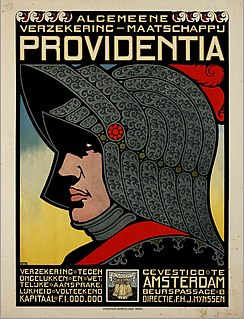Carl Minkley was an interior decorator, housepainter, labor movement activist and Socialist Party of America politician from Milwaukee, Wisconsin who served two terms in the Wisconsin State Assembly.
Arthur Koegel was a Socialist bricklayer from Milwaukee who served five terms from 1933-1942 as a member of the Wisconsin State Assembly.
Alex C. Ruffing was an American machinist and Socialist from Milwaukee who served four terms (1919–1926) as a member of the Wisconsin State Assembly and one shortened term in Wisconsin State Senate representing Milwaukee County-based districts
Edward H. Zinn was an American mechanical engineer, tax assessment clerk and Socialist from Milwaukee, Wisconsin who served two terms (1913–1916) as a member of the Wisconsin State Assembly representing the 7th Milwaukee County Assembly district (7th and 10th wards of the city of Milwaukee.
Albert F. Woller was a machinist, auto mechanic and Socialist politician from Milwaukee who served three terms as a member of the Wisconsin State Assembly from the Twentieth Milwaukee County District.
Philip F. Wenz was a carpenter and machinist who served three terms (1927–1932) as a Socialist member of the Wisconsin State Assembly from the 7th Milwaukee County district.
Charles Meising was a salesman from Milwaukee, Wisconsin, who served one term as a Republican member of the Wisconsin State Assembly, and conducted several less successful campaigns.
Edmund J. Berner was a trade union activist from Milwaukee, Wisconsin who served four terms as a Socialist member of the Wisconsin State Assembly.
Herman O. Kent was a farmhand, typesetter and trade union activist from Milwaukee, Wisconsin who served two terms as a Socialist member of the Wisconsin State Assembly representing Milwaukee County's 9th Assembly district.
James H. Vint was a machinist from Milwaukee, Wisconsin who served three terms as a Socialist member of the Wisconsin State Assembly.
William L. Smith was a barber from Milwaukee, Wisconsin, who served three terms as a member of the Wisconsin State Assembly.
Michael Katzban was a core molder and insurance salesman from Milwaukee, Wisconsin who served one term as a Socialist member of the Wisconsin State Assembly.
William C. Coleman was a house painter and trade union activist from Milwaukee, Wisconsin who served two terms as a Socialist member of the Wisconsin State Assembly.
George L. Tews was a machinist, businessman and real estate broker from Milwaukee, Wisconsin who served three non-continuous terms as a Socialist member of the Wisconsin State Assembly.
Edwin W. Knappe was an American machinist from Milwaukee who became a lawyer, and who served one term as a Socialist member of the Wisconsin State Assembly.
Joseph Klein was an American machinist from Milwaukee, Wisconsin who served one term as a Socialist member of the Wisconsin State Assembly.
William J. Alldridge was an American machinist from Milwaukee who served two terms as a Socialist member of the Wisconsin State Assembly representing the 5th Milwaukee County district. He later became a member of the Milwaukee Common Council, attended law school, and became a lawyer.
Herman Emil Georgi was an American schoolteacher, lawyer and Republican politician who served two terms as a member of the Wisconsin State Assembly from Milwaukee, Wisconsin, representing the 10th Milwaukee County district.
Theodore Engel (1866–?) was an American plumber and contractor from Milwaukee, Wisconsin who spent fourteen years as a Republican member of the Wisconsin State Assembly.










